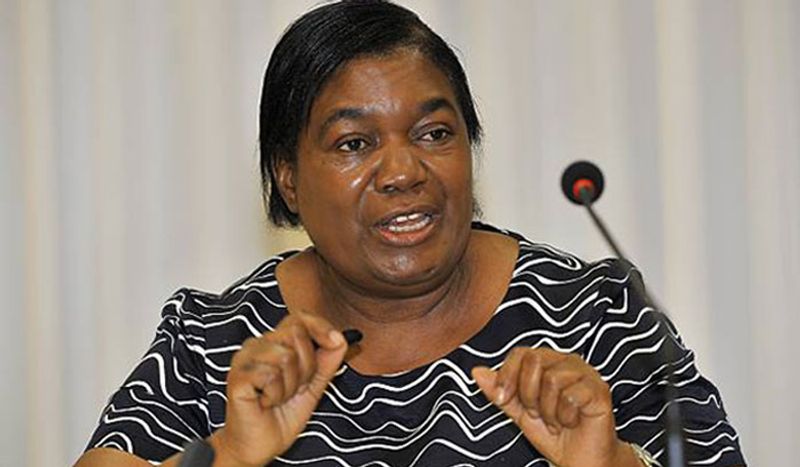
Makerere University law don Dr. Busingye Kabumba recently presented a paper at the university’s law school entitled “Is militarizing Uganda’s public sector a solution to government’s crisis?” In his eloquent delivery, he warned of grave effects likely to befall Uganda’s economy in general and the public sector in particular if it is not helped to shake itself free from the “grip” of the Uganda People’s Defence Forces (UPDF) which he said was on rampage taking over a growing number of government institutions under the guise of incompetence.
“Militarism is the very antithesis of democracy and it is a very tenuous basis for the foundation of a peaceful and prosperous state,” Dr. Kabumba said. “There is therefore a dire need for a genuine national conversation as to how best to begin to reverse this trajectory of militarized governance as a means of collectively seeking a peaceful future for ourselves, our children and grandchildren.”
According to Dr. Kabumba, Militarism refers to the prioritization of the military over civilian authority in public service delivery and the use of force more broadly to the detriment of other spheres of national life.
Judging by the wild excitement the presentation drew from the audience which included among others, members of the academia, civil society, politicians and students, it was timely as some participants called for the arrest of this trend or else it is just a matter of time before no public institution remains running under civilian authority.
Margret Ssekaggya, the Executive Director of the Human Rights Centre Uganda, in her submission, accused the NRM government of “deliberately failing to facilitate public institutions,” an omission she referred to as a tactical excuse for allowing the army to take them over.
“For how long are we going to watch UPDF take over institutions and yet it is government itself culpable? Most of the institutions which have ended up in the hands of the military first suffered the problem of being poorly resourced resulting in poor performance which is being used as an excuse for the takeover, ostensibly to bail them out,” Ssekaggya said.
Like Ssekagya, Makerere University lecturer of History Mwambutsya Ndebesa, warned of far reaching effects on the Ugandan economy as a result of UPDF subduing civilian leadership in various public institutions.
“Take for example the agricultural sector where we are supposed to have extension workers. They must be a very demoralized group of people with UPDF doing most of the work they are supposed to do,” he said.
He also interprets the practice as a suppression of human rights alleging that UPDF is now having a silent role of vetting appointments into key government officials especially those that have a bearing on UPDF’s work, a scenario he lamented was eliminating would be candidates to serve in public institutions.
Professor Jean Barya who doubles as the chairman of the Society for Justice and National Unity (SoJNU) interprets UPDF’s deployment into public institutions as an admission of failure on government’s part to manage government institutions – indicating a larger governance challenge for whose solution politicians such as former legislator John Ken Lukyamuzi minced no words to call for regime change.
The call was however no good music to the ears of UPDF and government officials who were in attendance.
The Deputy Inspector General of Police (IGP) Brigadier Sabiiti Muzeeyi argued that that all the interventions the national army has done in public institutions are legal. He advised Ugandans who can’t stomach it to either go to court or go hang.
“It is such a falsehood to say that the country appears to be adopting an approach towards militarization of key public institutions. This is because the government of Uganda has 126 Ministries, Departments and Authorities (MDAs) including State House out of which the UPDF has a o.o3 % presence,” Muzeeyi said.
“Certainly, such a percentage cannot and should not be reflected as militarization of the public sector. Moreover such interventions are necessitated by objectives concrete conditions and in most cases are relatively short term with defined tasks and objectives in non technical but in supportive roles that would not in any way compromise either competence nor standards,” he added.
Muzeeyi based his arguments on article 209 of the constitution which among others empowers the UPDF to support civil authority and to engage in productive activities for the development of Uganda.
“We want you to understand that we are not going to sit back and watch as things go from bad to worse. We are the ones who are hurt when things go wrong. Much as we are not partisan, we are at the same time not apolitical,” he said.
The Executive Director of the Uganda Media Center, Ofwono Opondo, dismissed Kabumba’s paper as unreasonable.
Currently, the UPDF is deployed in several institutions including the National Identification Regulatory Authority (NIRA), the Uganda Wildlife Authority, the Police, Fisheries, the Standard Gauge Railway (SGR), the Health Monitoring Unit, Emigration, the Civil Aviation Authority (CAA) and in the ministry of Agriculture – through courtesy of the Operation Wealth Creation (OWC)
. Using OWC as a case study, examples have abounded in the past to the effect that soldiers are not angels incapable of flaws either.
On several occasions for example, agriculture inputs such as coffee and mango seedlings worth millions have been dumped by suppliers at farmer’s premises and farms even when they do not need them, while there have also been numerous cases of collusion between OWC officers, and other actors in the supply chain including suppliers.
It is in view of such challenges that several members of the public this journalist talked to urged government to desist from further militarizing its institutions using the excuse of poor performance but to plan adequately in order to adequately resource them (institutions) for more effective service delivery.















Sunrise reporter
Leave a Comment
Your email address will not be published.